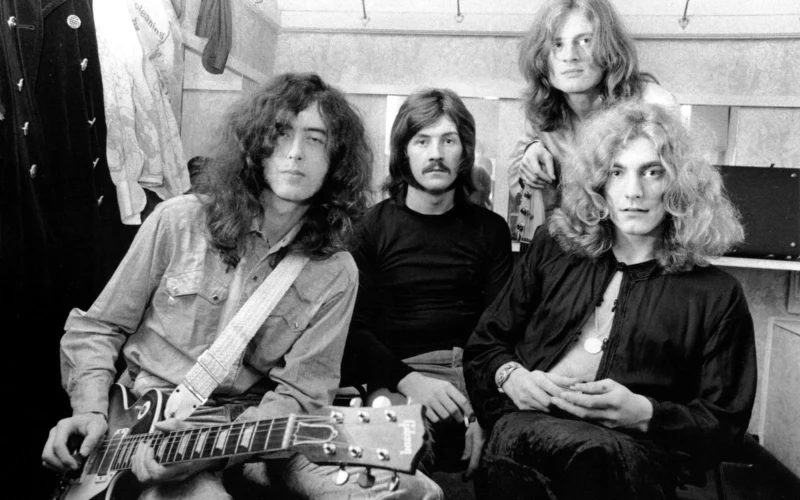It’s hard to imagine any member of Led Zeppelin not being involved in the group somehow. A handful of bands tend to have magic amongst their bandmates, and if anyone in Zeppelin walked out of the fold, there would be no way of adequately replacing them. Even though the band made the reluctant decision to fold after the death of drummer John Bonham, there was a good chance that the band could have been over a few years prior.
Throughout the band’s early days, Zeppelin were known as the perfect hybrid of a studio outfit and raw live animal. Although Jimmy Page and John Paul Jones could twist the music in different directions whenever they walked into the studio, the live stage is when the experiments were brought one step further, with Page implementing his bow on the strings and introducing the theremin into the mix.
This came from years of working in the world of session music. Before Zeppelin had formed, Page and Jones had been veterans of the English studio scene, with Jones making different arrangements for artists like The Rolling Stones. Once the band started to taste success beyond their wildest dreams, though, Jones started to see that they might hit a wall.
Shortly after the recording of Houses of the Holy, Jones noticed that the crowds were getting much bigger than any of the band could handle. Despite playing to amazing crowds in the London clubs, the massive arenas were starting to take their toll on the most quiet member of the group.
As 1973 rolled around, Jones had been in talks to leave the group, wanting to return to the comfort of the recording studio. When discussing his apprehension with the current iteration of Zeppelin, Jones never thought that the band would even last more than a few years, saying, “I thought the band would be fun for a few years. I needed to do something musically free and fun and liberating, but then I’d get back to the more serious career in the studio”.
While the shows would end up being the biggest spectacles that rock had ever seen, Jones cited the relentless touring schedule as a reason for wanting to get off the road. Given the high demands of a massive rock band, Jones thought that he would be better suited in the studio where he could be close to his family, explaining, “We were all very tired and under pressure, and it just came to a head. I didn’t want to harm the group, but I didn’t want my family to fall apart, either”.
Although Jones eventually aired his grievances to manager Peter Grant, he figured that it would be best to keep the band going, no doubt wanting to sacrifice the massive contracts that they were under to put on their massive shows. When working on the next project, though, Zeppelin would offer up one of their most ambitious studio experiments yet, embracing every genre they could think of across the album Physical Graffiti.
Jones eventually got his wish, though, making incredible arrangements after Zeppelin by working with artists like R.E.M. and Foo Fighters. Zeppelin may have soldiered on longer than Jones would have expected, but he did make the studio his home once the dust had settled.







